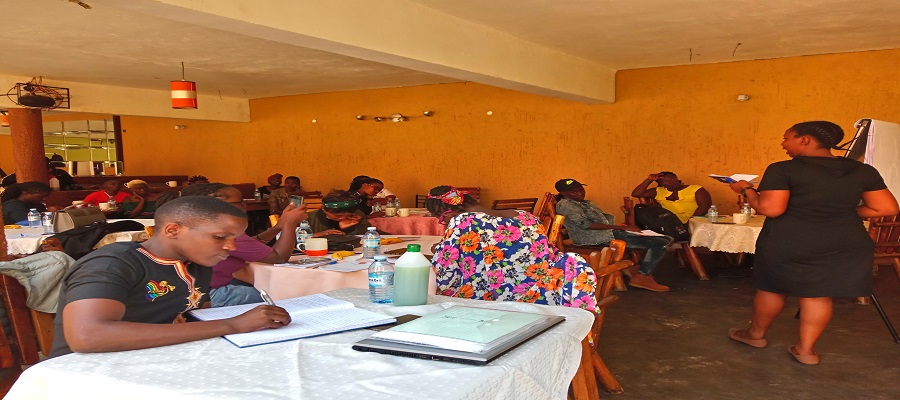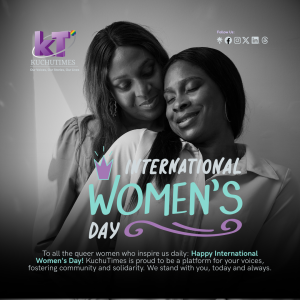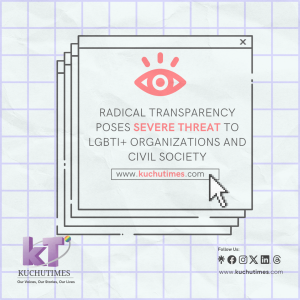Freedom and Roam Uganda (FARUG) last week held a dialogue on Sexual Gender Based Violence (SGBV) amongst LBQ women. Supported by MEMPROW, the meeting was attended by FARUG members and representatives from different LBQ organizations. The conversations were aimed at enabling participants understand their rights when it comes to violence against same sex loving women and accessibility to SRHR services.
The first session about Advocacy and Discrimination focused on helping participants understand the importance of advocacy as a tool in influencing change or decisions within the political, social and economic systems of society. "Discrimination is present because there is usually no law to stop it. And the purpose of discrimination is to nullify and impair but advocacy is how vulnerable groups can have their issues heard, advocated for and safeguarded like everyone else. This is how our needs and issues are considered or addressed like anyone else's and ensure that laws are implemented," the session facilitator shared. She further explained that discrimination can take on various forms based on sexual orientation, gender identity, religion, financial status, culture, age and religion. Participants noted that even though all women are challenged by the different forms of discrimination because of their gender, it is heightened against LBQ due to homophobia once they are found out.
Gloriah Dh El, the Programs Director of FARUG took participants through a session on sex and the law with a special focus on the Sexual Offences Bill, its grave impacts on the LGBT+ community and how to safely and effectively engage society especially religious leaders on the same. "The Sexual Offences Bill was birthed by the Family Network, which is a coalition of religious leaders who came together and brainstormed on what should be sexual offences in this country and how sexual offenders can be held accountable," she said. "To Uganda as a country, religion plays a very vital role so religious leaders in this country make laws. This is why it is important for us as a community to engage with them," she noted.
Participants acknowledged that this bill is not entirely detrimental since it protects everyone from sexual abuse like rape, defilement, sexual assault during detention, police custody or in places of employment by persons in positions of authority. However when it comes to LBQ women, what is considered as sexual offences with in this piece of legislation can affect same sex loving couples or individuals negatively in relation to sexual acts and sexual harassment if amendments or language are not revised, notably Sections 16 (a) (b) (c), 17, 21. These clauses were copied from the penal code about criminalizing same sex conduct and pasted right into this bill. They have previously and continuously used these sections (145 and 146) within the penal code to stigmatize and discriminate LGBT persons and suspects for "carnal knowledge against the order of nature" even though it's not distinctly defined in the law. Participants were also advised to have adult consensual relationships that are also free from violence, refrain from random social media hookups and sending pornographic content without permission.
Executive Director of FARUG and also a GBV champion, Nkali Ssenfuka Warry took on queer parenting and forms of violence in same sex relationships that go unnoticed like patriarchy, financial deprivation and emotional abuse. Many victims don't recognise when these violations take place due to the Stockholm syndrome. "The simple forms of violence that we take for granted are the most painful ones and people become emotionally stressed and sick from these," Nkali said. She emphasized that violence is fueled when victims stay silent and not report these cases. However, intimate partner violence can be reported by anyone based on the Domestic Violence Act of 2010 and the perpetrators be charged under the law.
Participants were also advised to take advantage of the psychosocial support and counseling available at FARUG if mediation and communication between intimate partners fail. "We need to condemn and call out our own perpetrators on violence and tell them it's not okay. It happens because we continue to let these things happen and because they feel entitled. We shouldn't run away these situations but rather deal with them strategically especially in public places."
In relation to parenting, several LBQ parents have been blackmailed and manipulated through their children. "We have dealt with four cases of queer mothers with fathers' of their children going to their schools and outing them," she said. On this, Nkali advised that it is necessary for LBQ women dating partners with children to be understanding and supportive to avoid conflict when it comes to the children. This will help them not to lose their kids or put them at risk. One of the participants however pitched in that it is the responsibility of queer mothers to have conversations with their children while they are still young so that they can understand the dynamics of sexuality and gender. Nkali also stressed that lesbians can have children if they so wish despite the common stereotypes that they cannot.




